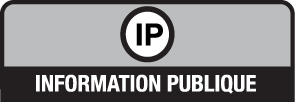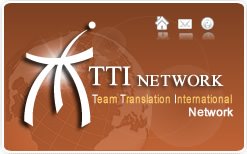Frequently Asked Questions
You can find a list of questions/answers related to sworn translations below.
1) For sworn translations, is it necessary to attach the source document with the translation?
It is not necessary to attach it. The translator will state at the end of the translation that he has worked on a document he has had in front of him and that the translation is true to it. However, to demonstrate that the translation corresponds to this source document, the client must present both parts to the body that requires the translation. A more practical solution, when you do not want to provide the original source document due to fear of loss or damage (as in the case of degree certificates), is to make a photocopy of the original document, have it authenticated before a notary, a court or a police station (according to the town) and send it to the translator so that they can attach it to the translation in place of the original document. If the client does not authenticate the photocopy, the translator will state at the end of the translation that he has attached a photocopy only. It is then the responsibility of the client to demonstrate the authenticity of the source document.
2) Is it compulsory to employ a sworn translator of the Appeal Court of my region or department?
No, the title of sworn translator makes it possible to swear documents that are valid over the whole of France.
3) Are their particular obligations for sworn translators?
Yes, the sworn translator must have a professional qualification and is subject to a legal obligation of continuous training. Decree n° 2004-1463 of 23.12.2004 compels experts registered on an Appeal Court expert list to follow specific training courses in order to ensure that they possess the knowledge required to fulfil their duties. Moreover, they must apply for and justify their re-registration on this list every 5 years.
If they are independent, it is compulsory for sworn translators to be registered with URSSAF. Do not forget to request an invoice from them for any service provided. Sworn translators must be declared to the competent authorities and bodies. We advise you to use translators who are members of an association of translators. These associations have a moral obligation to check that their members are in order with the taxation authorities and social security bodies.
4) Is it better to employ an independent sworn translator or a translation agency?
We are not able to take sides on this point. But you should be aware that translation agencies employ sworn translators from the official lists. It is therefore quite likely that rates for a same translator will be higher when using an agency, unless it has negotiated preferential rates with the translator. As to deadlines, with an independent translator you will normally have a greater speed of execution of your translation, but the choice of translator is your responsibility. Agencies, meanwhile, know their translators and will find you the most suitable person to undertake your translation and deliver you a turnkey service. This can be an advantage when you do not have the time to search for an available translator yourself.
5) Why is there such a difference in price between sworn translations and non-sworn translations?
Sworn translators have unrestricted fees for civil translations. They generally offer their rates according to the rates charged by other sworn translators of the region and to a certain extent define their rules themselves. For non-sworn translation, the supply of translators is greater. Sworn translators are in competition with translation agencies who often employ translators from countries where social security costs are lower (Luxemburg or Belgium for example) or obtain preferential prices from their usual translators, and their rates then become competitive. You should thus feel free to consult both sworn translators and translation agencies in the case of a free translation.
6) How do you tell that a translation has been properly sworn?
First of all, the expert translator must be registered with an Appeal Court on an official list. The directory of our site references all the translators registered on these lists of the various Appeal Courts. Any translator sworn in by the court is authorized to provide a certified or sworn translation. This is a translation containing a declaration (for example a concluding formula of the “translation certified as being true to the original” sort) by the translator, which is certified by a signature and a stamp. But in general, there is no absolute rule for the authentication of a translation. The translator must first make sure that the translation is verifiable. This means that the layout of the original text must be kept, as much as possible, in the translated text and that the nature of the translated document must be clear. It must be stated above the translation that it is a translation, and the language of the source document must also be indicated. Untranslated parts, such as the signature or the stamp, are reproduced in square brackets, for example: [signature (with sometimes the statement “illegible”)], [stamp and key]. All the pages of both the translation and the source text are numbered and initialled. The end of the translation is clearly indicated, for example by a line. In this way additions by a third party are avoided. The declaration of the sworn translator is placed beneath the end mark or on a separate sheet.
This declaration by the translator proves that the translated text is a faithful reproduction, of the source language in the target language, of the original text or of a copy (attached to the translation.) This declaration repeats the following data: surname, first name(s), the statement “sworn translator” and the language(s) for which the translator is sworn.
7) Is an apostille necessary on sworn documents?
The authenticity of the signature of the sworn translator can be confirmed by the addition of an apostille. The apostille is valid in countries that have ratified the Treaty of The Hague of October 5th 1961. This treaty abolishes the requirement for diplomatic or consular legalization of foreign public deeds established on the territory of one of the signatory countries of the treaty. The apostille is added to the document in question by the clerk of the court in which the signature of the translator is filed.
In countries that have not signed this treaty, legalization is required. The legalization of the signature of the sworn translator on the documents he produces is regulated by Article 4 of the Sworn Translators Act. The signature is legalized by the presiding judge of the court in which the translator is registered. This procedure is far more complicated than the attachment of an apostille. Specifically, after legalizing the signature, the document must be presented in succession to the Ministry of Justice, the Ministry of Foreign Affairs and the Consulate of the country in question, after which it can be sent to the destination country. In addition, it is also possible to have the signature legalized directly by the Consulate.
Fiscal fees must be paid both in the case of the apostille and of legalization.
8) How do I know if I have to have a document sworn?
A sworn translation is carried out to authenticate an original document. In general, it is therefore possible to have any document translation sworn for authentication. But all official documents or declarations that according to law must be entered in a public register (passport, driving license, marriage certificate, degree certificates, land registry, public registry documents, notarized deed, etc.) require a sworn translation. With some rare exceptions, it will be systematically requested of you.
9) Are sworn translations legal abroad?
N/A
10) Are the rates for sworn translations the same everywhere?
Independent sworn translators have unrestricted fees for civil work which is therefore not subject to any particular regulations. Rates may vary greatly according to the different sworn translators and we therefore advise you to acquire at least 3 different quotes. For example, a one-page degree certificate to be translated into English with a sworn translation may vary from €30 to €75 according to the translator.
11) Are sworn translators who are members of an association or a syndicate better than the others?
Translation is above all about know-how, so the quality of the work provided is primarily a reflection of the sensitivities of each individual. It is therefore not possible from the point of view of quality to say whether the work of an affiliated translator is or is not better than that of an unaffiliated translator, although a translator affiliated with an association or a syndicate will be in order with social security bodies as a matter of principle.
12) What is an honorary expert?
This is a title that may be granted on condition that the translator has been registered for at least 10 years on an Appeal Court list or on the expert lists of the Court of Cassation and has reached 70 years of age; as they no longer feature on any of the aforementioned lists, only those granted honorary status can still make use of their title, with the sole condition that they follow the word “expert” with the word “honorary”.
13) What languages are possible for sworn translation?
There are 150 language combinations for 3899 expert translators established in 2015.
The languages entered on the official lists include the following, among others:
English– German– Russian- Ukrainian- Slovakian- Czech- Turkish- Dutch- Spanish- Italian - Portuguese- Arabic- French- Serbian- Polish- Bielorussian- Romanian- Danish- Bulgarian- American English-Swedish- Berber- Armenian- Mandarin- Chinese- Hebrew- Japanese- Khmer- Persian- Serbo-croat- Sanskrit- Finnish- Tibetan- Afghan- Greek- Vietnamese- Thail- Hungarian- Norwegian- Catalan- Slovenian – French Sign Language- Albanian- Somali- Cambodian- Croat- Macedonian- Moldavian- Cantonese- Kurdish- Bengali- Wenzhounese- Sinhalese- Korean- Soninke- Bambara- Sarakole- Jahanke- Dyula- Maninka- Lingala- Tshiluba- Swahili- Georgian- Hindi- Urdu- Laotian- Iranian- Tamil- Mongolian- Bengali- Pakistani- Kabyle- Azeri- Lithuanian- Fulani - Bosnian- Flemish- Syro-Lebanese- Brazilian- Montenegran- Latvian- Pushtu- Fang- Yugoslavian- Farsi- Dari- Indonesian- Estonian- Turkmen- Uzbek- Tagalog (Philippinese)- Kosovar- Maghrebi- Romany-Tsigane- Punjabi - Malaysian- Tatar- Tsigane- Wolof- Hassaniya- Iraqi - Kyrgyz- Maore- Modern Greek- Creole- Marathi- Xiang- Pekinese- Chechen – British English- Braille- Riffian- Nepali- Munukutuba- Kituba- Lari- Kikongo- Azerbaidjani- Senegalese- Malian- Guinean- Tajik- Galician- Tahitian- Marquesan- Latin- Occitan dialects- Bislama- Amharic- Tigrinya- Poular- Herzegovinian languages - Taki-taki- Guyanese Creole- Sranan Tongo- Bushinengue Tongo- Haitian Creole - Guyanese- Malagasy- Comoran- Romany- Afghan

